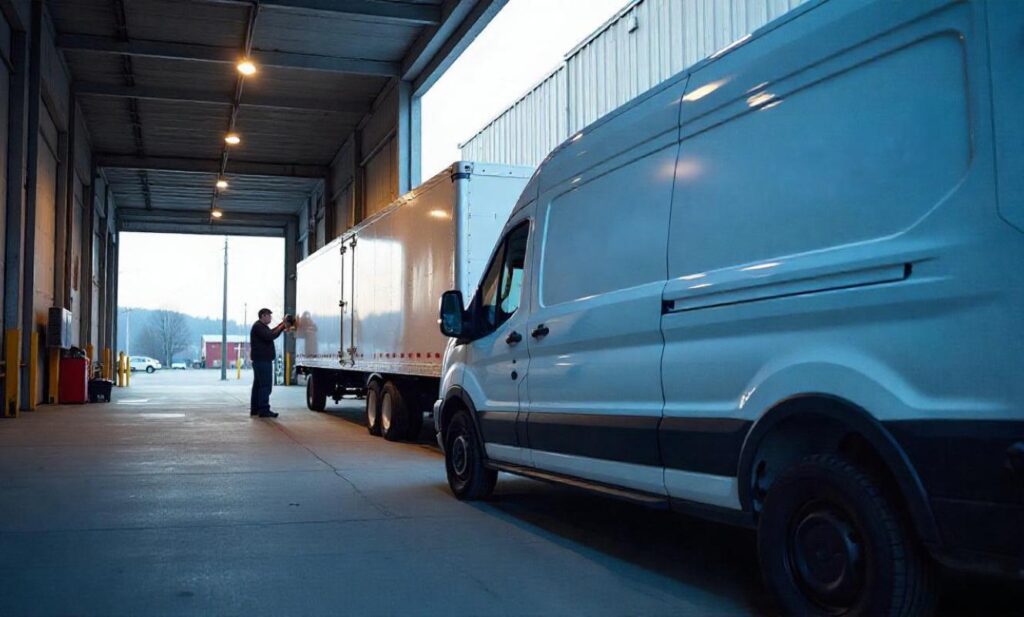Transporting temperature-sensitive goods like fresh produce, frozen foods, pharmaceuticals, or dairy products demands precision. Refrigerated trailers, or “reefers,” are designed to maintain specific temperatures, but even a slight deviation can lead to spoiled cargo, financial losses, and regulatory violations.
At Setpoint Reefer Service, we understand the critical role of temperature control in refrigerated trailers. In this article, we’ll explore why precise temperature management is essential, the risks of failure, and how proper maintenance ensures compliance and cargo safety.
Why Temperature Control Matters in Reefer Trailers
Refrigerated trailers are the backbone of cold chain logistics, ensuring perishable goods reach their destination in optimal condition. Here’s why temperature control is non-negotiable:
- Cargo Integrity: Many goods, like vaccines or fresh produce, have strict temperature requirements. A deviation of just a few degrees can ruin an entire shipment.
- Regulatory Compliance: Agencies like the FDA and USDA enforce stringent guidelines, such as the Food Safety Modernization Act (FSMA), requiring consistent temperature monitoring and documentation.
- Customer Satisfaction: Delivering spoiled or compromised goods damages your reputation and client relationships.
- Cost Savings: Proper temperature control prevents costly losses from rejected shipments or emergency repairs.
Without reliable temperature control in refrigerated trailers, businesses face risks that can ripple across their operations.
Common Causes of Temperature Control Failures
Temperature issues in reefers often stem from equipment or operational oversights. Here are the most common culprits:
- Faulty Thermostats or Sensors: Inaccurate readings can lead to improper cooling.
- Refrigerant Leaks: Low refrigerant levels reduce cooling efficiency, causing temperature fluctuations.
- Worn Door Seals: Gaps allow warm air to enter, forcing the unit to overwork.
- Improper Loading: Blocking airflow with incorrectly stacked cargo can create hot spots.
- Neglected Maintenance: Skipping regular servicing increases the risk of component failures.
Understanding these risks is the first step to preventing them.

Practical Tips for Maintaining Temperature Control
To ensure your refrigerated trailer maintains precise temperatures, follow these actionable steps:
1. Regular Calibration of Thermostats and Sensors
Schedule routine checks to verify that temperature sensors and thermostats are accurate. Miscalibrated equipment can lead to undetected temperature swings.
2. Inspect and Replace Door Seals
Check door seals for wear or damage before every trip. Replacing worn seals ensures a tight barrier against outside air.
3. Monitor Refrigerant Levels
Low refrigerant is a common cause of cooling failure. Have a professional, like the team at Setpoint Reefer Service, inspect and top off refrigerant as needed.
4. Train Drivers on Proper Loading
Ensure drivers understand how to stack cargo to allow proper airflow. Avoid overloading or blocking vents, which can disrupt cooling.
5. Use Temperature Monitoring Systems
Invest in real-time monitoring devices that log temperatures and alert you to deviations. This helps with both compliance and quick response to issues.
6. Schedule Preventive Maintenance
Regular servicing of your reefer’s cooling system, compressor, and electrical components prevents unexpected failures. Partner with experts like Setpoint Reefer Service for thorough inspections.
The Consequences of Poor Temperature Control
Failing to maintain proper temperature control in refrigerated trailers can have serious repercussions:
- Spoiled Cargo: Perishable goods may become unsafe or unsellable, leading to financial losses.
- Regulatory Fines: Non-compliance with FSMA or other regulations can result in hefty penalties.
- Reputation Damage: Consistently delivering compromised goods can erode trust with clients.
- Increased Costs: Emergency repairs and rejected shipments drive up operational expenses.
Proactive temperature management mitigates these risks, keeping your business running smoothly.
How Setpoint Reefer Service Can Help
We specialize in ensuring your refrigerated trailers maintain precise temperature control. Our expert technicians provide comprehensive maintenance, repair, and emergency services to keep your reefer fleet compliant and reliable. From inspecting cooling systems to addressing urgent breakdowns, we’re here to protect your cargo and your bottom line.
Stay Compliant, Stay Reliable
Effective temperature control in refrigerated trailers is more than just a technical requirement—it’s a commitment to quality, safety, and trust. By following these practical tips and partnering with a trusted service provider like Setpoint Reefer Service, you can safeguard your cargo and avoid costly disruptions. Contact us today to schedule a maintenance check or learn how we can support your cold chain logistics.
Keep your cargo cool and your business thriving!

